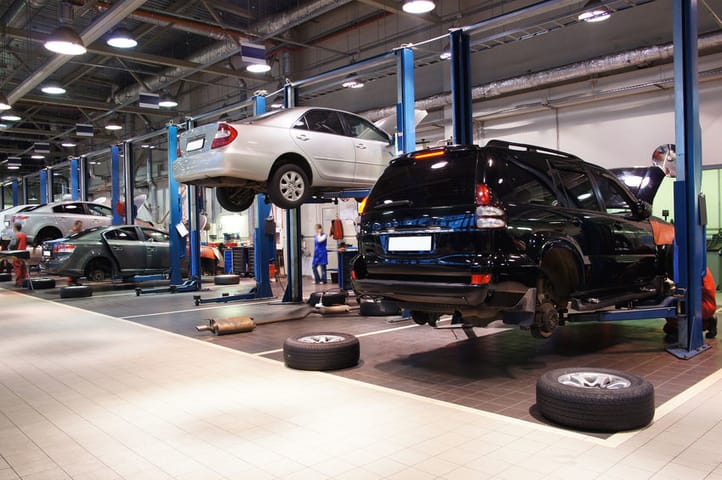All Categories
Featured

Your vehicle's engine is the heart of your lorry, and keeping it in leading condition is crucial for optimum efficiency and durability. Regular engine tune-ups are a wonderful means to preserve your auto's health, improve fuel performance, and stay clear of pricey fixings later on. Whether you're a cars and truck lover or a person who just wants to keep their automobile running efficiently, these engine tune-up pointers will certainly assist you get the most out of your auto.
- Change Glow Plugs. Spark plugs play an essential function in beginning your engine and making certain smooth combustion. In time, ignition system can end up being unclean or broken, causing misfires, reduced gas efficiency, and harsh idling.
Throughout an engine tune-up, check and replace your ignition system if needed. Many cars require new ignition system every 30,000 to 100,000 miles, depending upon the type. Regularly replacing stimulate plugs guarantees correct ignition and optimum engine performance.
- Inspect and Tidy the Air Filter. The air filter avoids dust, dust, and particles from entering your engine. A blocked or dirty air filter limits airflow, triggering your engine to function more difficult and shed even more gas.
Evaluate your air filter during a tune-up and change it if it's filthy. In dusty environments or locations with heavy pollution, you may need to change the air filter extra often. A tidy air filter can enhance fuel efficiency and prolong the life of your engine.
- Examine and Change Belts and Pipes. Belts and tubes are crucial for various engine features, such as powering the generator, water pump, and cooling system. With time, these elements can crack, fray, or put on out, possibly leading to break downs.
During a tune-up, check belts and pipes for indicators of wear and replace them if required. Changing these components proactively can conserve you from pricey repair work and avoid unforeseen failings.
- Tidy the Fuel System. Your gas system, consisting of the fuel injectors and gas lines, can build up dust and carbon deposits with time, decreasing engine efficiency. Cleaning the gas system during a tune-up aids improve performance and gas economy.
You can utilize a fuel system cleaner or have a professional mechanic do a much more extensive cleaning. This step is especially essential for older cars or vehicles that regularly drive in stop-and-go web traffic.
- Examine the Battery and Billing System. A healthy battery is vital for beginning your engine and powering electric parts. Throughout a tune-up, examine the battery terminals for rust and guarantee the links are limited.
Examine the battery's voltage and replace it if it reveals indications of weakness. In addition, have the alternator and charging system examined to ensure your battery remains charged during procedure.
- Modification the Engine Oil and Oil Filter. Oil changes are a fundamental part of engine upkeep. Engine oil lubricates relocating components, lowers friction, and helps manage engine temperature. Over time, oil ends up being polluted and sheds its effectiveness.
During a tune-up, change the engine oil and oil filter to maintain your engine running efficiently. Follow your lorry's manufacturer suggestions for oil type and adjustment periods.
- Examine the Cooling System. The cooling system prevents your engine from overheating. Over time, coolant can break down or become infected, decreasing its performance.
Check the coolant degree and condition throughout a tune-up, and flush and replace it if required. Check the radiator, water pump, and pipes for leakages or damage. A properly maintained air conditioning system aids your engine operate at the best temperature and avoids overheating.
- Examine the Ignition System. A faulty ignition system can cause beginning issues and reduced engine performance. Throughout a tune-up, examine the ignition coils, distributor cap, and blades (if suitable) Change any type of elements that reveal indications of wear or damage to make sure smooth and trustworthy engine operation.
- Pay Attention for Unusual Sounds. Throughout a tune-up, take the chance to listen for any kind of uncommon engine noises, such as knocking, ticking, or hissing. These audios can show underlying problems, such as shutoff issues, loosened components, or exhaust leakages. Dealing with these problems early can avoid extra extensive damage.
- Use Quality Parts and Fluids. When performing an engine tune-up, always use premium parts and liquids that fulfill your vehicle maker's specifications. Low-cost or wrong components can compromise your engine's efficiency and reliability.
Final Thought: A Well-Tuned Engine is Secret to Long life. Regular engine tune-ups are vital for maintaining your vehicle's performance, effectiveness, and reliability. By replacing worn parts, cleaning crucial systems, and resolving potential issues, you can keep your engine running efficiently for several years ahead. Whether you're doing it yourself or depending on a trusted technician, buying tune-ups is a wise way to protect your lorry and enjoy a much safer, smoother ride.
Latest Posts
Check Out Budget-Friendly Auto Repairs with Montclare’s Exclusive Service Specials
Uncover Cut Costs on Car Maintenance with Montclare Auto Repair’s Limited-Time Deals
Find Out Save Big on Car Maintenance with Montclare Auto Repair’s Limited-Time Deals
More
Latest Posts
Check Out Budget-Friendly Auto Repairs with Montclare’s Exclusive Service Specials
Uncover Cut Costs on Car Maintenance with Montclare Auto Repair’s Limited-Time Deals
Find Out Save Big on Car Maintenance with Montclare Auto Repair’s Limited-Time Deals